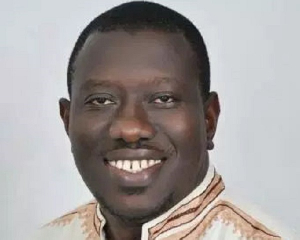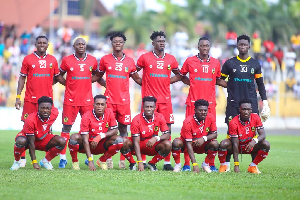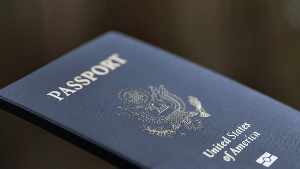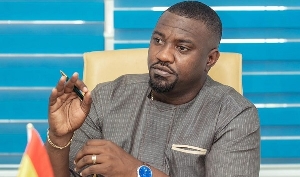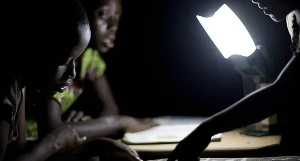The world will be a meaningless and chaotic place to live, if human development excludes human safety and security.
Fortunately, the United Nations (UN) Sustainable Development Goals (SDGs) recognised the importance of peace, good governance, justice and security as a critical block for human progress.
Goal 16 of the SDGs stipulates: “Promote peaceful and inclusive societies for sustainable development, provide access to justice for all and build effective, accountable and inclusive institutions at all levels”. But it seems the goal 16 has been somewhat marginalised.
Security Challenges
Existing and emerging security challenges continue to threaten national peace and security.
Chieftaincy and ethnic clashes; farmer-herder conflicts; violent demonstrations; armed robberies; proliferation of arms; human and contraband trafficking; and sexual and gender-based violence are notable traditional threats to human security.
In recent times however, emerging security threats such as kidnappings, abduction, cybercrime, vigilantism, terrorist and violent extremist attacks, agitation for succession and increasing political tension have started gaining currency in the country.
The insurgence of terrorist and violent extremist attacks in neighbouring Burkina Faso and the continuous atrocities perpetrated by the Boko Haram in Nigeria heightened fears on the coastal West Africa, given the porous borders across the sub-region.
The aforementioned security challenges require a holistic and coordinated preventive approach to mitigate threats to human lives and the stability of the country.
Kidnappings in Ghana
Kidnapping is abducting and holding anybody captive with the intention of obtaining a ransom. Sometimes, kidnappers hold their captives much longer in order to demand more from the relatives of the victim.
It is a global security issue, which Ghana is no exception. The phenomenon has risen sharply in the country in recent years, causing a wave of anxiety among Ghanaians and foreigners alike.
The infamous case in point is the “Takoradi missing girls” which occurred between July and December 2018. After months of intensive investigations by the Criminal Investigations Department (CID) of the Ghana Police Service, it emerged that Priscilla Blessing Bentum, 21, Priscilla Mantebea Koranchie, 18, Ruth Love Quayson, 18, and Ruth Abekah, victims of the kidnapping were killed by their abductors.
Two suspects-Samuel Udoetuk Wills, 28, and John Orji, both Nigerians are currently standing trial for their alleged involvement in the crime.
In June 2019, two Canadian students-Ms Lauren Tilley and Ms Bailey Chitty, who were undertaking volunteer work for Youth Challenge International, an international development organisation, were abducted at Ahodwo, a suburb of Kumasi, of the Ashanti Region.
Police investigations led to the rescue of the victims, two weeks after the incident and eight suspects including; five Ghanaians and three Nigerians were arrested in connection with the crime.
In April last year, an Indian man and Estonian diplomat were kidnapped in Kumasi and Accra respectively, but both were later rescued by the security agencies.
Recounting those incidents is scary and sends shivers down the spine of everybody because one can’t tell who is monitoring your movement.
Harvesting of Human Organs
There was a staggering revelation by an Investigator and Security Threat Analyst, Mr George Dosoo Doyen, that there is a human trafficking syndicate operating in the West African sub-region that is in the business of abducting and killing innocent people.
He said they kill and harvest the body parts of their victims for sale in Thailand, Indonesia, India, Singapore and other foreign countries for exorbitant fees.
These human organs, he said were mostly sold to people with kidneys, hearts, livers, lungs problems and other sensitive parts of the body for transplant. According to him, there were over 90,000 patients on the waiting list in Singapore alone waiting for healthy kidneys for transplant.
In fact, 15,731 people need liver urgently in Singapore, 3,839 heart patients requiring healthy hearts for replacement while 1,650 lung sufferers are longing for new lungs to replace their deteriorating ones in order to survive.
For instance, the street value of a heart is US$119,000, lung-US$312,650, Kidney/Pancreas-US$62,000, Liver-US$157,000, Intestine-US$2,519, and Cornea-US$30,000, Mr Dosoo Doyen said.
According to the American Transplant Foundation, 114,000 people were on waiting list in the United States of America looking for fresh and healthy organs for transplant.
World Health Organisation (WHO) in 2018 said brokers charged a whopping $100,000 from wealthy families, who needed human organ for transplant and the brokers paid a meagre $1,000 to poor persons to donate their organs.
China is especially well-known for organ trafficking with report of prisons executing prisoners and harvest their organs for sale without their consent. The UN estimated that about $90 billion are generated annually by human trafficking syndicate worldwide.
It’s pathetic that most of the victims killed are promised juicy jobs abroad and upon their arrival, they are abducted, killed and harvested, while others are seized forcefully, blindfolded and whisked to an unknown location.
Explaining the modus operandi of the syndicate, Mr Dosoo Doyen said: “They often come to you and say to you, Sir, I know your son is dying and is having heart issues and so we can help you fix the problem”.
It must be observed that since those people whose daughters, sons, wives and husbands are wealthy people, they could pay any amount to get the human organ for transplant.
“Therefore after admitting the health challenge, the syndicate promised to offer those body parts in three or four weeks. Ask yourself whether those body parts are sold on the open market or manufactured?
The syndicate often comes to the West African sub-region, abducts innocent people and subsequently kill them for that purpose. There are others who kill people for money rituals and acquire spiritual powers.
“Nowadays, members of such syndicates use spiritual powers to hypnotise innocent persons and when they touch any part of your body, the victim follows them wherever they are going.
“This organ harvesting is a booming business and we need to pay close attention to this human trafficking menace because it’s draining us as a nation,” Mr Dosoo Doyen fumed.
The porous nature of the country’s entry points allows all sorts of people from any part of the world to enter the country to commit crimes.
Security Education
Inadequate safety and security education on criminal activities and negligence on the part of the citizenry, public officials, security agencies and other state institutions without doubt can cause a major headache.
The safety of every individual is of utmost priority, but the avenues of education on the various crimes are scanty.
It is in this light that Doyen’s Leverage, a law enforcement and intelligence training institute, is empowering individuals, security agencies and public organisations under its corporate social responsibility programme christened “Security Awareness Programme” (SAP).
SAP is a practical safety and security educational programme designed for citizens to develop the expertise to identify threats and adhere to safety precautions and make them less vulnerable to criminal activities and operations.
Mr Dosoo Doyen, who is also the Executive Director of Doyen’s Leverage, in a chat said his Organisation undertook safety awareness programme to 38 institutions nationwide in 2019, including; the Bank of Ghana, Parliament House, Ghana Police Service, Churches and second cycle educational institutions and reached up to 38,000 participants in Western and Greater Accra regions.
The Organisation would extend its security sensitisation programme to other regions this year and believes that collaboration with the National Commission for Civic Education (NCCE) would be a major boost in that regard.
“We feel that it should be possible to give this safety information to every ordinary Ghanaian in wherever they are, whether at home, workplace, market and anywhere,” Mr Dosoo Doyen said.
Doyen Leverage also offered raining on professional intelligence and investigative training courses such as Corporate Security and Safety, Investigative Body Language, Search Techniques, Risk Management and Supervisor, Crime Scene Management and Professional Private Investigator to corporate organizations and individuals.
Safety Tips for Personal Security
It is time for everybody to take safety and security seriously by avoiding downloading personal information onto the social media. A lot of people speak recklessly in the presence of strangers and in public transport thereby giving leads to criminals to follow.
Do not flaunt your wealth on Twitter, Instagram, Facebook and other social media platforms since doing so is an indirect way of calling undue attention to yourself and making yourself an easy target to criminals.
You must be careful how you appear in public, because wearing expensive watches and chains is not a good idea since you would make yourself a target for criminals.
Try as much as possible to avoid attending night events and making sure you’re familiar with your surroundings whenever you find yourself in an unfamiliar environment.
It is imperative to talk to your children often on basic safety tips and how they could escape potential risky situations.
Government has also introduced a centralised emergency number 112 that could connect anyone in critical situation to emergency services including; the Ambulance, Police and Fire Service and it is advisable to educate your children about it and have them on their finger-tips.
Do not walk alone in a lonely place whether during the day or night and always advisable to walk in the company of two, three or more people.
Ecclesiastes 4 verse 12 has explicitly captured it “A person who stands alone can be attacked and defeated, but two can stand back-to-back and conquer. Three are even better, for a triple-braided cord is not easily broken”.
As a nation, we should take our border posts monitoring seriously through the deployment of modern technologies to scrutinise travellers’ luggage and thoroughly scan goods entering and going out of the country to safeguard all.
Safety is a shared responsibility and everybody has a role play to make the world a better place to live.
Opinions of Wednesday, 12 February 2020
Columnist: Godwill Arthur-Mensah







